Story by Andrew Keh and Weiyi Cai
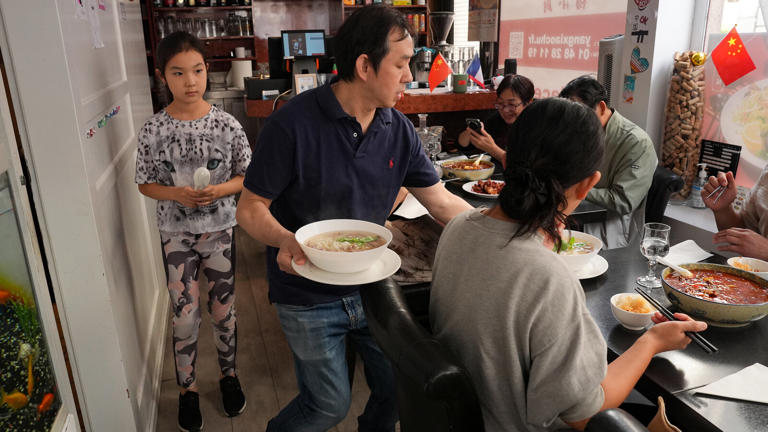
PARIS — As Tang Zhongqiu knows, there often comes a time in an Asian person’s trip to France when one grows weary of the endless parade of bread and seeks respite in a simple bowl of rice.
This is true of backpackers and businesspeople and, it turns out, Olympic table tennis champions.
So while Tang assumed there would be an uptick in customers at his Chinese restaurant in the 15th arrondissement of Paris after a nearby convention hall was converted into the table tennis arena for the Summer Olympics, he had no idea it would be like this.
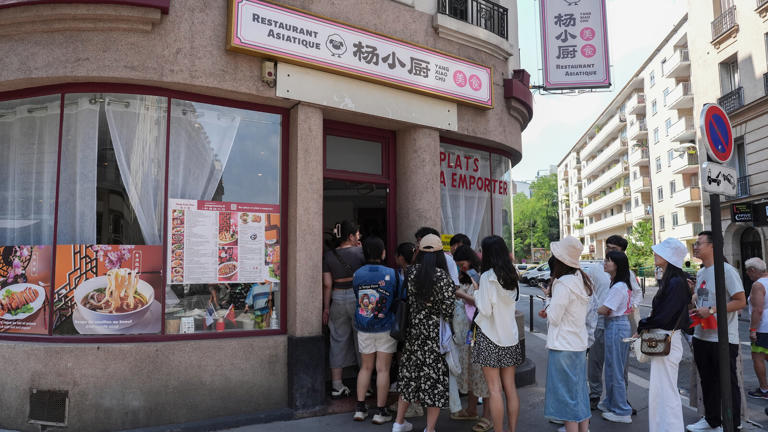
For the past two weeks, his narrow restaurant, Yang Xiao Chu, has been transformed into a bustling, unofficial clubhouse for table tennis, a sport followed most fervently and practiced most successfully in China. His store — one of the closest Chinese restaurants to the arena, but far enough that you would need to have sought it out — has been practically bursting at the seams with current Olympians, former gold medalists, team staff members, journalists and countless hungry fans.
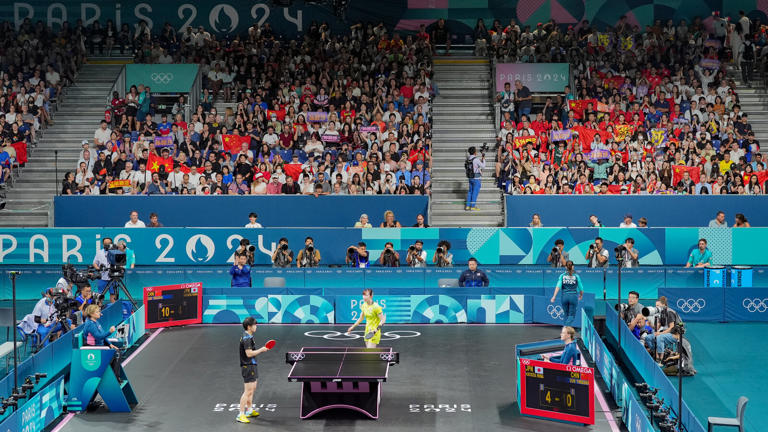
“I didn’t expect we would get this busy during the Olympics,” Tang said one recent morning, before the lunch rush. “I just look after them as if they were my family members.”
Tang, much to his disbelief, has now served luminaries of the game in China, like Ding Ning, a three-time Olympic gold medalist; Liu Guozheng, a former player and popular commentator; and Zhang Yining, a four-time gold medalist considered one of the best players in the sport’s history.
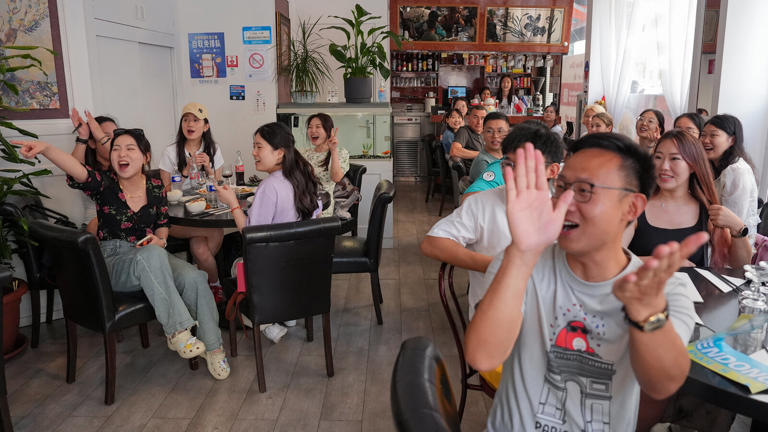
He has also fed a carousel of current Olympians like Doo Hoi Kem and Wong Chun Ting of Hong Kong, Hiroto Shinozuka of Japan and Yuan Jia Nan of France, among others. All have wandered over between events or workouts in search of a comforting meal.
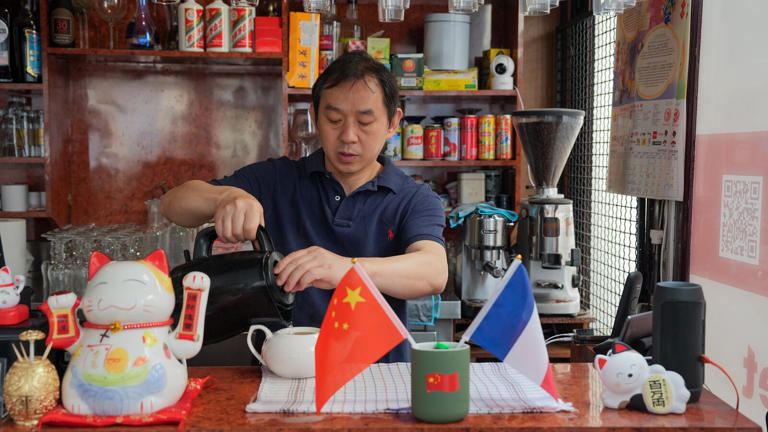
Yuan, the 19th-ranked player in the world, said she enjoyed her first visit so much that she returned days later for a second meal.
“It was good, because I like spicy food,” said Yuan, 39, who was born in Zhengzhou, China, and moved to France when she was 18.
Tang, 49, knows these people aren’t famous in France, where he has lived for two decades. But they’re celebrities in China, where he was born. And together they have helped make these Olympics one of the more remarkable experiences of his life.
“I’m very happy about it,” said Tang, originally from Xiamen in the province of Fujian. “Having all these people come here to eat meals shows that my dishes are good.”
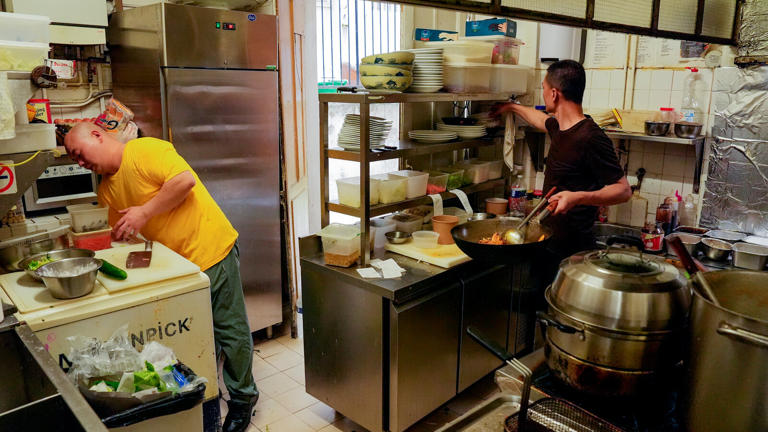
Things might have been different if that convention center had been used for, say, boxing or skateboarding or water polo. But the arrival of table tennis there has proved fortuitous.
Asia is the current hotbed of the sport, and China is its dominant power. The country has won all three available gold medals thus far — in men’s and women’s singles and in mixed doubles — and is favored to win two more this week in the team events. Players of Chinese descent fill the rosters of many national teams. And spectators from China have packed the stands every day.
With a sense of mission, this pop-up Ping-Pong community has bypassed the busy row of establishments in the more immediate vicinity of the venue and ventured a few extra blocks to Tang’s restaurant for nourishment.
“Chinese people like Chinese food,” said Gao Yiyi, 26, a fan from Ningbo, who has eaten at the restaurant every day of her trip to Paris — sometimes twice a day. “I can’t eat French food all the time.”
Some days, the line of waiting customers has spilled out the restaurant’s front door and filled the sidewalk outside. Customers, often carrying flags and homemade banners, have learned of the restaurant by word of mouth and Chinese social media platforms like Little Red Book.
Inside, the restaurant has the warmth of a living room — albeit one with an uncommonly large television set. In preparation for the Olympics, Tang bought a 98-inch screen, and the space now periodically swells with cheers from diners keeping an eye on the Games during their meals.
The tables crowd with dishes like suan cai yu (boiled fish and pickled cabbage soup) and shui zhu niu rou (spicy boiled beef) prepared by two cooks from China’s Sichuan Province. Diners have found comfort in the authentic flavors, given other restaurants in the city sometimes tweak their food to accommodate the local palate.
“It’s our home base,” said Cheer Gibbon, 40, a Chinese American fan visiting from San Francisco who has stopped by the restaurant every day of her trip. “A lot of famous people have been here, but he’s been keeping it very calm.”
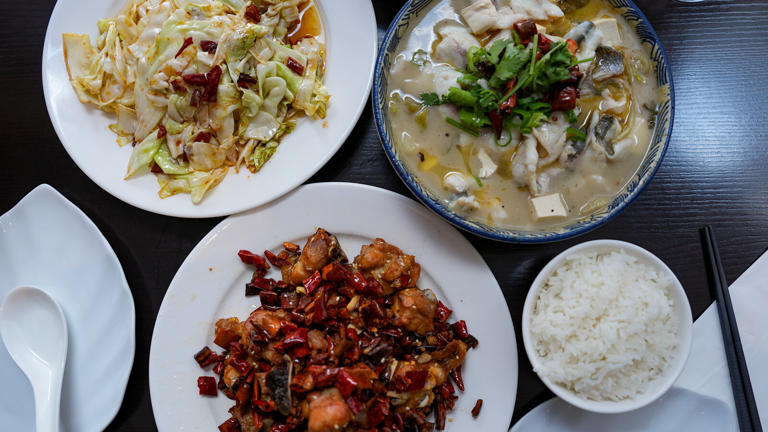
Tang said members of the Hong Kong, Japan and South Korea squads had felt like regulars this month. They have come between events or shuttled takeout containers back to the arena, often returning with colleagues.
On Sunday, the entire Hong Kong women’s team showed up after the cooks had gone home, so Tang summoned one back to prepare a meal for them.
No current Chinese athletes have yet come by, but Cloria Cao, 21, a customer visiting from Shanghai, bubbled with excitement as she revealed that members of the national team’s coaching staff — a celebrated group of former Olympians like Liu Guoliang, Ma Lin and Wang Hao — had dined in the restaurant.
Rubbing elbows with legends has been an unexpected perk for devoted fans, many of whom follow their favorite players around the world. Friendships have blossomed spontaneously among customers through conversations about food and their preferred athletes.
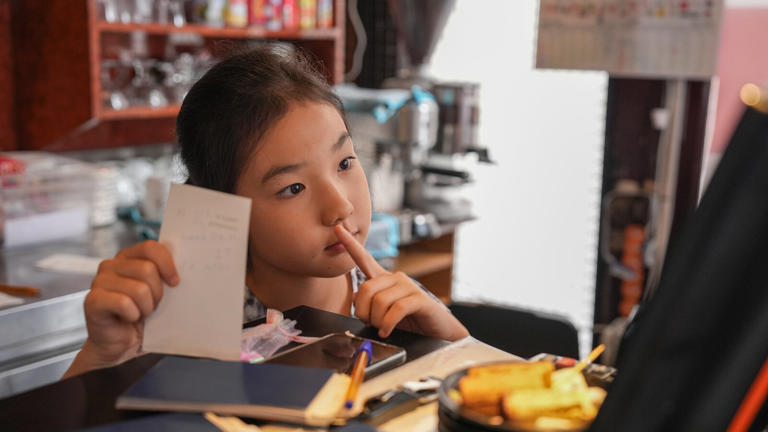
“We like them not just because they win games, but also because of their personalities,” said Hu Dan, 31, a diner from Nanjing. She said she went to a temple to pray for her favorite players, Wang Chuqin and Sun Yingsha, before departing for Paris.
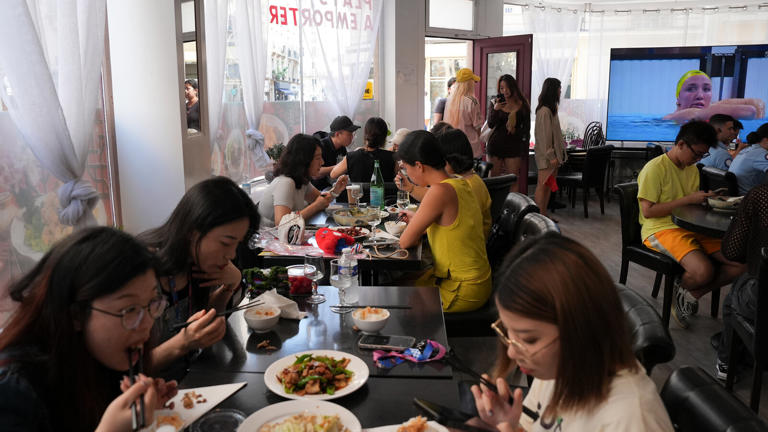
This being France, the restaurant’s one waiter has left the city for a monthlong vacation. Short staffed and now perpetually busy, Tang has turned to his two young daughters, Chloé (11) and Anna (10), for help waiting tables and folding napkins.
But the stress, he said, has been worth it. Tang has had menus signed by some players. He has taken photos with many of them, too, and eagerly scrolls through them on his phone. He wants to frame the shots for the walls of his restaurant, which for now are mostly decorated with colorful drawings by his daughters.
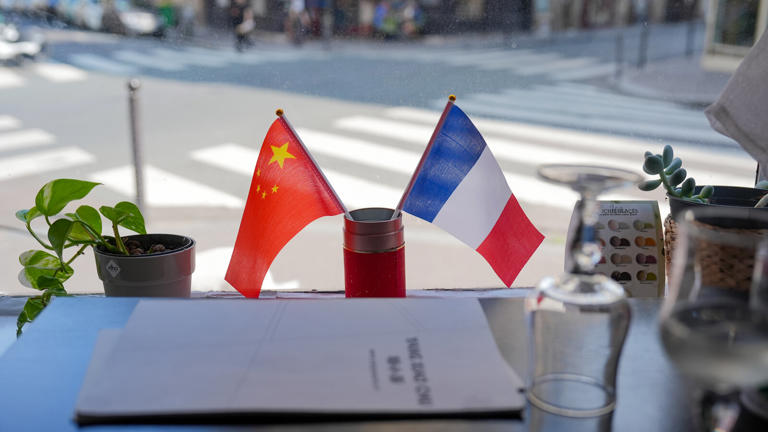
“It’s very tiring when things get busy,” Tang said. “But I’m still happy even when I’m tired. I get to meet all kinds of different customers. I get to make many new friends.”

